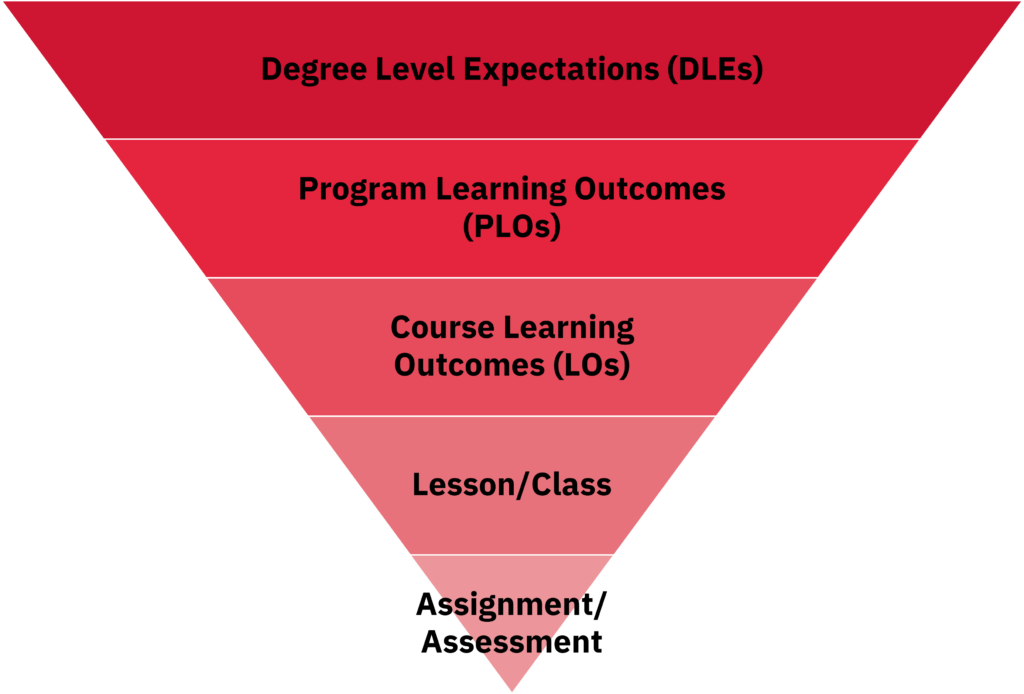How do you define the outcomes of a program for your students?
We often know what we teach, but we cannot always know what students are going learn unless we explicitly articulate learning goals.
Learning Outcomes (LOs) are statements that articulate these goals. They are statements of what students are expected to know or do by the end of an educational experience. By framing content around what students should learn, rather than what we plan on teaching, we make a (seemingly small but) powerful distinction between teaching and learning that sets our classroom up for student-centric education rather than teacher- or content-centric education.
Defining Learning Outcomes is a powerful step toward student-centric education. We can assess teaching and curriculum in relation to students' learning and, in doing so, identify ways to enhance students' learning now and in the future. Along with this, defining, mapping, and assessing Program Learning Outcomes (PLOs) allow us to monitor and assess the quality of our programs across York and ensure our programs meet the Ontario Government’s Degree Level Expectations.

Learning Outcomes Across Your Program and Teaching
Learning Outcomes can be written for an assignment, lesson, course, program, or a degree.

Ideally they work together, so that a clear Outcome is articulated for an assignment, which is an element of a clear Learning Outcome for a course, which fits into a clear Learning Outcomes for a program (PLO), which maps onto the Ontario Government’s Degree Level Expectations (DLEs) for undergraduate (UDLEs) and graduate programs (GDLEs).
Students aren't achieving every outcome with every assignment or in every course, but taken together, students' experiences across assignments and courses should result in a strong, totally articulated experience for their learning in a program.
Writing strong Learning Outcomes (LOs) and mapping the relationships between LOs (specifically Program Learning Outcomes (PLOs) to Degree Level Expectations (DLEs) and PLOs to course-level assignments) are important steps for designing and assessing a strong, student-centric program.
We have created resources to help you with Writing and Mapping your Learning Outcomes
For more see
Interesting Readings
Learning Outcome Support
Along with the Teaching Commons and the curricular support within your faculties, the Office of the Vice Provost Academic can support you in the development of your Program Learning Outcomes, ensure they meet the Degree Level Expectations, map your curriculum to these outcomes, and identify and support places for renewal and/or innovation. Contact us for more details.
The Teaching Commons can support the development of the Learning Outcomes for your lessons, activities, and assignments, as well as support new course development. Supports in your Faculty can help you bring all these elements into your curriculum.

Interested in renewing or innovating your curriculum?
Explore our resources or contact our Program and Curriculum Development Specialist for support.
